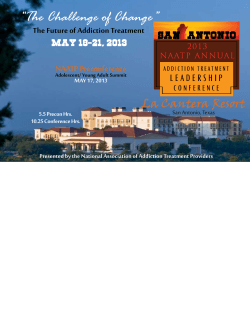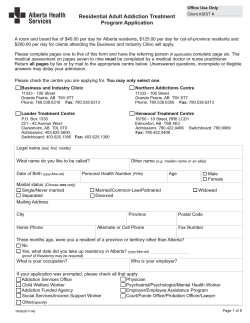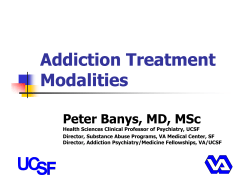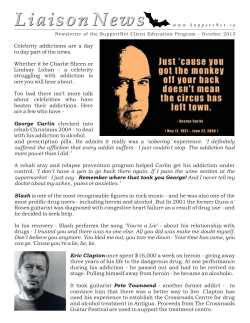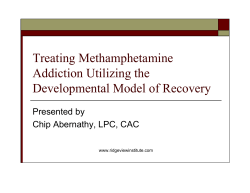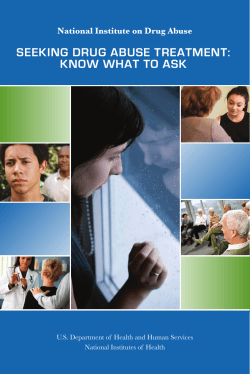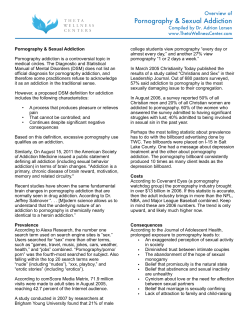
recovery addiction But there is a solution— .
addiction is a devastating disease for those who suffer and people who love them. But there is a solution— recovery. Addiction treatment at Hazelden rebuilds lives. Hazelden recognizes addiction to alcohol and other drugs as a chronic, progressive, and sometimes-fatal disease. We also know it is a manageable disease. That’s why treatment at Hazelden addresses multiple facets of addiction, and why our services and resources support lifelong recovery. Our patients—men, women, and youth—come to Hazelden from all parts of the country and all parts of the world. They and their families are often overwhelmed and in crisis. Addiction treatment at Hazelden helps them rebuild their lives. We are a national, nonprofit organization focused on addiction treatment and recovery support. With 60 years of knowledge and expertise, Hazelden has unmatched experience in leading patients and families through the chaos, fear, and isolation of addiction and into a new life of recovery. At Hazelden, patients and families begin the path to getting well, learn new tools for living well, and establish lifelong connections for staying well. hazelden.org 800-257-7800 We invite you to call us with questions. We are available 24 hours a day. Programs and Services Primary Care Addiction Treatment for Adults and Youth 2 Focus on Mental Health Specialized Services for Youth Specialized Services for Health Care Professionals 10 12 16 Family Care 18 Continuing Care 20 Recovery Support 22 Innovative Care Guide to Admission 24 Hazelden Locations 29 ▀▀ ▀▀ ▀▀ 28 Personal stories of addiction and recovery reveal the healing work of Hazelden. Hazelden staff have listened to tens of thousands of stories of recovery from addiction through the years—stories that have influenced our practices, advanced our understanding of the disease of addiction, and deepened our commitment to helping more people learn how to sustain lifelong recovery. The stories that follow are composites of real-life experiences we hear about every day. We share these stories to help you understand the destructive power of addiction—and the promise of recovery. 1 Primary Care Hazelden clinicians recognize each patient as an individual with the potential for lifelong recovery from the disease of addiction. Addiction to alcohol and other drugs is a disease—and like many diseases, a simple and easy answer does not exist. Addiction must be treated and then managed for a lifetime. At Hazelden, an interdisciplinary team of skilled clinicians works with each patient to ensure that we address all aspects of addiction and co-occurring disorders that affect the body, mind, and spirit. What is addiction? For more than 50 years, the American Medical Association has recognized addiction to alcohol and other drugs as a chronic disease. Characterized by compulsive drug seeking and abuse and by long-lasting chemical changes in the brain, addiction is the same whether the drug is alcohol, amphetamines, cocaine, heroin, marijuana, nicotine, or a prescription medication. “I couldn’t see that I Continued use of the addictive substance causes changes in the brain that lead to tolerance, physical dependence, uncontrollable craving and, all too often, relapse. was addicted. I learned the truth about addiction at Hazelden.” 2 “Beyond my wildest dreams. That’s how I describe my life today as an alcoholic and addict in recovery. It’s a life I couldn’t begin to comprehend the day I stepped through Hazelden’s doors because I was blind to my problem. My drinking started in college when I discovered how whiskey helped me—a painfully shy guy—suddenly become the life of the party. I was very funny when I drank. I could talk to girls. I felt I finally fit in. When the alcohol no longer helped, I found cocaine. I took pride in the amount of alcohol and drugs I did, like it was a badge of honor. Over the next 18 years, my use grew from every evening, to all night, to all day and all night. But I knew I could quit anytime I wanted. My therapist Primary Care Helping you make informed decisions Hazelden recognizes that each individual who turns to us for help comes with a unique personal history and set of circumstances. We do not assume that everyone who contacts us for care is addicted. Our assessment process provides recommendations and referrals designed to help individuals and families make informed decisions about the next step. These recommendations may include residential primary care treatment, nonresidential treatment, or referrals to physicians, mental health practitioners, family counselors, or other helping professionals. Clinically integrated, individualized care The goal of addiction treatment at Hazelden is lifelong recovery for each patient. Our abstinence-based, Twelve Step approach incorporates integrated clinical disciplines with individualized planning and care. These interdisciplinary care teams consist of addiction counselors, psychologists and psychiatrists, physicians and nurses, family specialists, spiritual care professionals, nutritionists, and wellness specialists who collaborate in developing and administering individually tailored treatment plans. For many Hazelden patients, addiction treatment also involves clinical care for co-occurring mental health conditions such as depression or anxiety disorders. Hazelden understands that recovery from addiction also involves rebuilding relationships with family members and friends. Through Hazelden’s Family Programs, patients and family members receive education, guidance, and support to achieve a healthier way of life. thought differently. She recommended that I check into Hazelden. The day I arrived at Hazelden, I thought I had my life under control. I had two cars in the driveway. I had a big house in a great neighborhood. I had a successful small business. What I refused to see was that I didn’t have a driver’s license because of drunk-driving violations, I wasn’t making my house payments, and my company was on the verge of collapse. At Hazelden, I realized how unmanageable my life had become. My only regret is that I waited so long to get help. I couldn’t see that I was addicted. I learned the truth about addiction at Hazelden.” 3 Primary Care Residential primary care treatment locations Residential and nonresidential options Center City, Minnesota Newberg, Oregon Plymouth, Minnesota (Youth) Hazelden’s nurturing and respectful environment provides the optimal setting for patients and families to focus on making physical, emotional, and spiritual changes that build lifelong recovery. Primary care addiction treatment at Hazelden is delivered in both residential and nonresidential programs. Our model of care is defined by individualized treatment planning, clinical integration, respect for the dignity of each patient, and open, comfortable surroundings. Nonresidential primary care treatment locations Center City, Minnesota Chicago, Illinois New York, New York Plymouth, Minnesota (Youth) St. Paul, Minnesota Our residential campuses are located on rolling, wooded acres with walking trails and abundant natural beauty. Patient living areas and gathering spaces are designed with comfort, safety, and serenity in mind. Our nonresidential settings offer convenient programming so that patients can balance treatment with daily work and/or family obligations. A recommendation for residential or nonresidential care is determined through the Hazelden assessment process. Candidates for our nonresidential treatment programs are those who do not require medically-supervised detoxification or stabilization, have stable mental and physical health, have had few if any prior addiction treatment experiences, and have a supportive home and work environment. 4 Primary Care The patient’s treatment plan Addiction treatment at Hazelden begins with a comprehensive, individualized plan developed by an interdisciplinary team of clinicians who meet regularly to review and modify each patient’s plan as needed. The patient’s treatment plan is influenced by a variety of factors. Recommended levels and types of care are based on the addictive substance, family history, existence of cooccurring illnesses, gender, physical health, stability of home and work environments, and many other variables. Tailoring treatment in this way ensures each patient the most effective approaches and the best opportunity for recovery. Addiction counseling Hazelden patients learn about their disease and the process of recovery through individual counseling and group sessions facilitated by a licensed addiction counselor. The addiction counselor guides each patient through the treatment experience, arranging for and accessing resources as clinically appropriate. Specific issues such as anger, assertiveness, disordered eating, gender, grief, trauma, gambling, sexual compulsivity, and other potential obstacles to lifelong recovery are also addressed. Mental health Addiction counselors and mental health professionals work closely together under the Hazelden Model of care, from daily consultation about patients to co-facilitating group-therapy sessions. A mental health professional is designated for all patients with a co-occurring diagnosis such as depression or anxiety disorder. Patients diagnosed with a co-occurring disorder learn how alcohol and other drug use can complicate mental health problems. Individual psychological therapy is goal-directed, with the patient focusing on attitude change and skill development to reduce emotional stress and strengthen social, interpersonal, and vocational skills. Topic-focused group psychological therapy provides opportunities to share information, insights, and emotional support with other patients. Medication management, when needed, is handled on-site by our psychiatry staff. Medical care Physical examinations are conducted during the first few days of admission while residential patients are in the medical services unit. Licensed nursing professionals staff these units, with additional physicians, psychiatrists, and emergency hospital services available. For patients in need of detoxification from alcohol or other drugs, Hazelden’s medical staff provides around-the-clock care, ensuring safety and comfort. hazelden.org 800-257-7800 We invite you to call us with questions. We are available 24 hours a day. 5 Primary Care Anti-craving medications Anti-craving medications can play an important role in the treatment of addiction for some individuals. Hazelden assesses all patients to determine whether anti-craving medications would be beneficial. When implemented, anti-craving medications are used in combination with the Hazelden Model of care to help patients enter recovery and stay sober. Spiritual health Addiction affects the body, mind, and spirit, and spiritual care is an essential component of each patient’s treatment experience at Hazelden. A spiritual care professional helps patients understand how addiction affects the human spirit and how recovery includes caring for one’s spiritual self. Our spiritual care professionals respect the belief system of each patient. Hazelden is not affiliated with a religious denomination. Wellness and recreation Designed to help patients create balance in their lives, individual and group wellness programs focus on stress management, self-care, relaxation, and leisure activities. A variety of wellness services are available by location, including seated chair massage, biofeedback, gentle yoga, or creative arts. “I sensed at my very core Fitness programs encourage patients to take better care of themselves physically. Exercise improves physical and mental health, self-image, and self-esteem, and it is a natural way to reduce stress. Recreational amenities for residential patients include walking and running trails, a fitness center, and a swimming pool depending on location. that I would be in good hands at Hazelden—and I felt ready to face my problems and begin moving forward.” 6 “Agreeing to seek treatment was the scariest thing I have ever done. With my family’s help and support and at my employer’s urging, I made the decision to go to treatment at Hazelden. But I was terrified. When I landed at the airport, I was broken, scared, lonely, and hopeless. My pain must have been obvious to the Hazelden driver who picked me up that day because she said, ‘You’re probably feeling miserable, but everything is going to be all right.’ She was partly right. I was miserable. But I also felt I was beyond help. I didn’t believe everything was going to be all right. I remember pulling into Hazelden and, from my very first moment there, sensing something might be different. Way down somewhere in my darkness, Primary Care Gender-specific programming Hazelden has maintained separate primary addiction treatment programming as well as separate lodging for men and women since 1956, when women patients were first admitted. Separate programming allows men and women to stay focused on their own recovery progress, explore sensitive issues with peers in a safe and supportive environment, and strengthen their fellowship with others in recovery. It has been Hazelden’s experience, supported by subsequent and ongoing research, that gender-specific treatment provides patients with the best opportunity for recovery. Length of stay Hazelden’s goal for each patient is lifelong recovery. As a result, the length of stay for each patient is determined by the patient’s interdisciplinary care team as treatment progresses. For many residential patients, an average length of stay is four to five weeks, but a longer stay may be recommended if clinically appropriate. I felt this tiny nudge, this speck of hope. Maybe it started with the driver’s reassuring words. Maybe it was the look on the nurse’s face that told me she knew exactly what she was doing. Maybe it was the gentle tone of my counselor that made me feel I belonged. Or the kindness of the other women patients that told me I would be understood. I sensed at my very core that I would be in good hands at Hazelden—and I felt ready to face my problems and begin moving forward.” 7 Primary Care The daily experience at Hazelden Daily treatment activities are carefully planned to help each patient understand what it means, and what it takes, to recover from addiction. The patient’s daily schedule is structured to include intensive therapy and education while still allowing time for personal reflection and relaxation. Individualized attention from clinical staff Each patient works with a licensed addiction counselor who serves as his or her primary therapist. Counselors meet with individual patients regularly to focus on personal issues and monitor treatment progress. Each counselor leads a small group of patients who meet daily for group therapy. Hazelden maintains small group sizes and low patient-to-counselor ratios, allowing for personal attention from staff. Educational presentations Patients gain essential knowledge and insight about the disease of addiction through the wisdom and experience of staff and guest speakers. Therapeutic lectures cover topics relevant to individuals in early recovery. Presenters, including Hazelden clinicians, alumni, and other invited speakers, offer insight and education about important treatment concepts such as “acceptance” and provide inspiration through personal stories of addiction and recovery. hazelden.org 800-257-7800 We invite you to call us with questions. We are available 24 hours a day. 8 Primary Care Specialized appointments Each patient’s day has time built-in for individualized appointments with professionals from their interdisciplinary treatment team. These might include meetings with professionals who specialize in mental health, smoking cessation, spiritual care, nutrition, or wellness. Personal time Patients take time each day for reflection and relaxation. Individualized treatment plans frequently include reading assignments to support personal goals for recovery. By making time for relaxation and recreational activities, patients discover how to build healthy new practices into their daily recovery. Nutritionally balanced meals Eating well is part of a healthy recovery. We provide delicious, wholesome meals to our patients. Mealtimes at Hazelden are a time to slow down, enjoy the company of fellow patients, and be nourished. Time for fellowship with other patients The experience of sharing with, and learning from, other patients in treatment is helpful and meaningful. Through mutual support and day-to-day feedback with each other, patients begin to understand the need for fellowship and ongoing support in recovery. 9 Primary Care Focus on mental health It is very common for those who struggle with addiction to also have co-occurring mental health challenges such as depression, attention deficit/hyperactivity disorder, or posttraumatic stress disorder. To maximize our patients’ potential for lifelong recovery, addiction treatment at Hazelden fully integrates assessment and care for co-occurring mental health issues. OUR SPECIALIZED PERSPECTIVE Hazelden’s mental health clinicians are highly sophisticated at differentiating the effects of addiction and mental health conditions—what’s related to chemical use, what’s a residual effect of chemical use, and what are stand-alone mental health issues. Our staff includes psychologists, psychiatrists, social workers, and marriage and family therapists. We partner with referring physicians, mental health practitioners, and family counselors to help inform patient care. Individualized attention, vast expertise All patients at Hazelden receive a complete mental health assessment, and those with a co-occurring condition are assigned a mental health professional. Specialized assessments are also available to identify other co-occurring compulsive or addictive behaviors such as eating issues, gambling, sexual compulsivity, or relationship compulsivity. hazelden.org 800-257-7800 We invite you to call us with questions. We are available 24 hours a day. 10 Primary Care Today’s most effective practices Treatment is tailored to address the patient’s specific needs, with one-to-one sessions with a mental health professional available as often as daily, if needed. Hazelden utilizes the most current evidence-based addiction treatment therapeutic practices including Twelve Step Facilitation, Cognitive-Behavioral Therapy, and Motivational Interviewing. In addition, Hazelden patients benefit from many other therapeutic approaches including biofeedback, eye movement desensitization reprocessing, pain management, lifestyle balance, stress management, and insight therapies. Medication management Many medications are not safe for people in recovery because they may trigger relapse. However, there are many safe medications that can help to support recovery. Hazelden psychiatrists fully understand the challenges of medication usage in recovery and provide patients with expert medication management in treatment and recovery. 11 Primary Care Specialized services for youth Adolescents and young adults struggling with addiction miss out on many of the joys of normal adolescence—developing healthy friendships, achieving success at school, reaching personal goals. Addiction treatment at Hazelden’s Center for Youth and Families gives young people a fresh start on life. ADDICTION TREATMENT THAT FITS Our Center for Youth and Families, located in Plymouth, Minnesota, specializes in developmentally appropriate, gender-specific care for patients ages 14–25. Young adults, ages 18–25, are assessed to determine whether our youth or adult program will best meet their individual circumstances. A Hazelden counselor helps determine which program will ultimately result in providing the patient with the best opportunity for lifelong recovery. Creating ideal conditions for recovery “At Hazelden I was able to figure out who I am and who I want Nearly three decades of experience have shown us that young people are most open to change when they are treated in an environment of dignity and respect. Our structured yet nurturing environment encourages personal growth and responsibility. This unique approach has led to our recognition as a national leader in addiction treatment for youth. Hazelden’s priorities for young people in our care are the same priorities parents have for their daughters and sons. We want them to get healthy, to stay well, and to enjoy full and happy lives. to be. I have a whole new start on life.” 12 “Today, at age 17, I have a lot more experience living high than living sober—but I’m finally turning things around thanks to Hazelden. Schoolwork was always pretty easy for me but I tended to push things too far, break rules, and challenge my teachers and my parents. When I started fifth grade I was told that I had ADHD. That’s the same year I smoked my first joint. It was in the basement of my friend’s house. Something just clicked for me. I don’t know if it was the adrenaline rush of doing something forbidden or the warm, floaty feeling of escape. Whatever—I liked it, I wanted more, and I chased that high for the next six years, no matter where it took me. I was in and out of a bunch of different school programs. It was a blur. Nobody knew what Primary Care Devoted to working with youth Hazelden staff bring expertise and passion to their work with adolescents and young adults. They know how to reach young people with approaches that are developmentally appropriate and interactive—approaches that emphasize experiential exercises; creative expression through music, art, or writing; and outdoor activities. It’s often more than addiction Many patients who receive addiction treatment at our Center for Youth and Families also have a co-occurring mental health issue such as attention deficit/hyperactivity disorder, depression, or anxiety. Hazelden helps patients understand how their different diagnoses interact. A mental health professional is designated for each patient who has a co-occurring disorder to ensure that the patient’s mental health needs are identified and treated along with his or her addiction. to do with me—I didn’t know what to do with me. Finally, by some miracle, I landed at Hazelden’s Center for Youth and Families. When I showed up at Hazelden, I was so depressed and so messed up. But there were people who understood and accepted me, and I felt safe enough to tell them what was going on inside me. Without Hazelden I know I would have ended up dead by now. Instead, I am grateful for every new day. At Hazelden I was able to figure out who I am and who I want to be. I have a whole new start on life.” 13 Primary Care Parents are partners in recovery Hazelden views parents as vital partners in their child’s treatment and recovery. Counselors gain important insight and information from parents during the assessment process and throughout treatment, and counselors provide parents with weekly updates on the patient’s progress. Patients may call their parents every day during free time if they wish, and parents are able to leave messages for their child as often as they choose. Our intensive, four-day Parent Program equips parents with the knowledge that they did not cause their child’s addiction, and teaches techniques for effectively supporting their child’s new life in recovery. Through small-group discussions with other parents, lectures, videos, and a family conference with their child, parents explore the far-reaching impact of addiction on their child’s life, their life, and their family’s life, and discover ways to parent a young person in recovery. Addiction treatment for youth Hazelden’s Center for Youth and Families is located in Plymouth, Minnesota. Levels of care and services include: 14 ▀▀ Assessment ▀▀ Residential evaluation ▀▀ Residential primary care treatment ▀▀ Nonresidential primary care (day treatment) ▀▀ Residential extended care ▀▀ Mental health ▀▀ Parent Program Primary Care Keeping up with academics Addiction affects every aspect of a young person’s life, including their academic development. Our licensed teacher works closely with the patient’s home school district and family in establishing academic goals during treatment and coordinating day-to-day school activities and assignments. Hazelden’s academic services—which include on-site basic education instruction, access to an area learning center (for extended care patients), and credit opportunities for therapeutic work—focus on credit recovery and credit maintenance for patients. Learning to have fun—sober Discovering how to enjoy life sober can feel awkward, even scary, for young people who have relied on chemicals to have fun. Recreation is an important part of life in recovery, and it’s an important part of the treatment experience at Hazelden. Volleyball, basketball, and working out at the gym are popular health and fitness activities. Our patients also challenge themselves, expand their horizons, and explore new ways to have sober fun through trust walks, ropes courses, outings to movie theaters or game arcades, visits to museums, and nature hikes. These recreational, social, and cultural activities help young patients learn to balance work and play — a skill that will serve them well throughout a lifetime of recovery. hazelden.org 800-257-7800 We invite you to call us with questions. We are available 24 hours a day. 15 Primary Care Specialized services for health care professionals Addiction treatment for health care professionals Hazelden’s addiction treatment program for health care professionals is located at our Newberg, Oregon campus. Specialized components of this program include: ▀▀ Integrated clinical services addressing complex recovery issues facing health care professionals ▀▀ Specialized group sessions with other health care professionals ▀▀ Extended care treatment designed to provide a solid framework for lasting recovery The disease of addiction can affect anyone, but for the health care professional, addiction poses significant risks that can affect the health and safety of the public. For nearly 20 years, Hazelden’s specialized program at our Newberg, Oregon campus has provided comprehensive evaluation, diagnostic, and addiction treatment services for health care patients along with thorough recommendations for their safe return to the practice of health care. FOSTERING COLLABORATION AND COMMUNICATION Hazelden has long-standing relationships with diversion, well-being, and monitoring programs and other experts who work with addicted health care professionals. We work together, from admission and assessment through treatment and continuing care, to ensure that critical issues affecting the health care professional are addressed during treatment and that referral to monitoring programs for licensed professionals is facilitated. COMPREHENSIVE EVALUATION, TAILORED RECOMMENDATIONS Our evaluation process takes place during a three-day residential stay on campus and includes a health assessment, a patient history and physical, and a review of reports by other professionals who have worked with the patient. Psychological testing, psychosocial assessment, addiction medicine assessment, and psychological and psychiatric evaluations are also important components of our discovery process. Specialized evaluations (for relapse or chronic pain, for example) are available and developed on a case-by-case basis. At conclusion of our evaluation, we meet with the patient to discuss findings, make recommendations, and communicate with referents, family members, or the employer as appropriate. Admission to residential treatment or referrals to other professionals or agencies can be facilitated. RELEVANT TREATMENT FOR SUCCESSFUL OUTCOMES Ready access to drugs, extensive knowledge of drugs, potential safety issues with regard to patient care, and difficulty assuming the patient role are among issues facing health care professionals with addiction. Hazelden’s residential treatment program includes intensive group therapy, psycho-educational services, and individual counseling to help patients develop an understanding of addiction and strategies for building lifelong recovery. Patients also access specialized services addressing a variety of addiction, mental health, physical health, family, 16 Primary Care and spirituality issues as they impact the patient’s profession. Through ongoing sessions with the program physician and clinical staff, patients address issues related to professional licensure, employment status, professional practice, participation in formalized health care monitoring programs, and other state medical board requirements that may affect the patient’s ability to return to practice. The benefit of time The issues faced by health care professionals in recovery are complex. Many health care professionals benefit from extended care treatment at Hazelden, a program that provides the clinical services necessary to develop relapse prevention strategies and continue building a foundation for recovery. This experience, coupled with ongoing clinical services designed for the licensed health care patient, helps with the transition back to home life and practice. Extended treatment for health care professionals is typically 60 days, but can be longer, if clinically indicated. Ensuring successful career re-entry Hazelden continues to work directly with various boards and monitoring programs to facilitate our patients’ safe, successful return to the health care practice. Practice assessments for each patient identify issues and concerns related to returning to work, particularly with regard to work hours and intensity, drug prescribing habits, and drug availability. We also help health care professionals design a program of continuing care that supports lasting recovery, including facilitating the transition to monitoring and diversion programs available to most licensed professionals. 17 Family Care Hazelden helps families and friends affected by addiction rebuild their lives. Families feel the pain of addiction, too. The Family Program at Hazelden is designed to promote the well-being of those who live with or care about a person with addiction. Healing for the whole family Through Hazelden’s unique four-day program, participants learn they can’t control their loved one’s addiction, but they can take responsibility for their own health and happiness. The stress of living with addiction can have physical, emotional, social, and spiritual consequences. Families of alcoholics and addicts often feel confused, frustrated, angry, and helpless. Hazelden’s Family Program and the Parent Program at our youth campus in Plymouth, Minnesota, help to alleviate confusion and anxiety and promote healing by identifying how addiction affects families and what family members can do to take care of themselves. (Participants do not need to have a family member at Hazelden in order to enroll in the Family Program.) “ At Hazelden, our family began to face difficult issues.” “My wife had a lot of anxiety. She was always a worrier, but her worries became more pronounced after our son was born. When I would try to ease her mind, try to get her to laugh like she used to, it only seemed to put her more on edge. When our son was young, my wife got into a pattern of staying up late to watch TV, enjoy a glass of wine, and have her private ‘peace of mind time.’ Over the next two to three years, she stayed up later and later and her mood was anything but peaceful. We never knew what to expect. More and more, my son and I walked on pins and needles around the house, trying not to say anything that would upset her. Bringing up the subject of her drinking was off limits, but I did start – 19 – 18 Family Care A new understanding The Family Program teaches and promotes healthy ways of responding to addictionrelated issues. This intensely educational experience involves presentations by Family Program staff, group discussions, personal goal-setting, reading and reflection, and fellowship with other participants. Loved ones of those with addiction learn that they can’t control addiction, they didn’t cause addiction, and they can’t cure addiction. By becoming aware of the beliefs and experiences that shape their own behaviors, participants identify new, healthy ways of coping with addiction and relationships. Looking ahead Family members of Hazelden patients have the opportunity to be involved in a family conference facilitated by a counselor. At this conference, families discuss and plan for the patient’s return home. paying attention to how much she was drinking. My wife only drank wine, so I didn’t think she could be an alcoholic. In her heart, I know she didn’t think her drinking was affecting our family, but it was. What happened at Hazelden is that our family was able to acknowledge that my wife’s drinking was destroying us. We learned that addiction is a disease and that the whole family needs healing. At Hazelden, our family began to face difficult issues. Our son came to understand that his mom was not a bad person; she was a sick person.” 19 Continuing Care Through our continuing care programs, Hazelden helps to keep patients moving forward in recovery. Residential EXTENDED CARE LOCATIONS Center City, Minnesota Newberg, Oregon Plymouth, Minnesota (Youth) residential INTERMEDIATE CARE LOCATIONS Chicago, Illinois St. Paul, Minnesota Maintaining a healthy recovery is a lifelong commitment because addiction has relapse rates similar to other chronic illnesses such as diabetes or heart disease. Research shows that the longer patients remain engaged in continuing care, the better their chances for sustaining recovery. Through our effective continuing care programs, Hazelden patients learn how to manage their disease and move forward in recovery. Next steps in recovery A continuing care plan supporting recovery is part of each patient’s Hazelden treatment experience. From structured residential programs to ongoing, at-home support, Hazelden provides individualized, continuing care plans for patients leaving our primary care treatment programs. Continuing care plans may include more residential care, a halfway house, or outpatient services. Recommendations may also include ongoing therapy, support group meetings, and other recovery support resources. “I now have the tools to keep me sober and a place where I can always turn for help: Hazelden.” “I marked my one-year sobriety anniversary last week. It’s a miracle. After more than 10 years of active addiction to alcohol and painkillers, it’s astounding to me that I can honestly say life is good. I spent more than half of my life drunk or high, and my addiction and depression led me to some pretty ugly places. I reached the end of my rope two years ago, and my situation was clear to me: change now or die. That sounds harsh, but it really was the choice I faced. A friend who had been to Hazelden told me that addiction treatment could help me get my life back. I had nothing left to lose. I thought I’d be at Hazelden for 30 days, but I stayed for 120. The first 30 days saved my life; the next 90 days taught 20 Continuing Care Extended care Extended residential care at Hazelden is recommended for patients who have a history of relapse or those who have complex recovery issues identified in primary treatment that require more time to heal. Extended residential care allows for more in-depth discovery and exploration of recovery issues, attention to mental health complications, and identification of relapse prevention strategies. Patients continue with individual counseling, group therapy, and other clinical care in developing a practical understanding of what their new life in recovery will involve and how to successfully navigate potential obstacles. Intermediate care Residential intermediate care, available at Hazelden’s Fellowship Club in St. Paul, Minnesota, provides a structured, supportive sober living environment for men and women in early recovery. In addition to continued individual counseling and group therapy, the Fellowship Club experience includes mental health services, vocational assistance, relapse prevention education, and peer and community support. Residents learn how to live with their newfound sobriety, developing the skills necessary to maintain an emotional, social, physical, vocational, and spiritual balance. Inspired living Hazelden offers a residential option for people in early recovery who want to live in a supportive, sober environment. Our sober residence, located in Chicago, Illinois, provides residents with on-site access to Twelve Step meetings, workshops, volunteer opportunities, Hazelden alumni events, and other activities that deepen and reinforce recovery principles and promote fellowship—all with the aim of helping to sustain lifelong recovery. me a new way of life. I learned what I needed to do to take care of myself, where to turn for support, and how to be aware of people, places, and things that could trigger relapse. I learned how to listen and not be afraid to share. Most of all, I learned to ask for help, and I still do, all the time. I’m also able to give help to others, which is a huge part of my recovery. I realize that recovery will be a lifelong journey for me. The difference is I now have the tools to keep me sober and a place where I can always turn for help: Hazelden.” 21 Recovery Support Throughout a lifetime of recovery, the Hazelden community is a source of information and support. Hazelden alumni often say, “Treatment is discovery. What happens next is recovery.” Research tells us that engagement in a recovery lifestyle—including participation in Twelve Step meetings, reading daily meditations, finding and connecting with a sponsor, enjoying sober friends and sober fun—is critical to avoiding relapse. Staying connected Recovery is a time of exploration, self-discovery, embracing life on life’s terms, and continually renewing commitments to self and sobriety. But successful recovery is not a solo pursuit. Participation in educational and service activities with others is essential to lifelong recovery. Hazelden extends the reach of recovery support to patients, families, and communities through published materials, alumni activities, retreats, and workshops. Publications “Because of Hazelden, my world is full of possibilities.” 22 Millions of people in recovery worldwide make Hazelden books a part of their day. With the publication of Twenty-Four Hours a Day in 1954—the first daily meditation book written expressly for recovering alcoholics—Hazelden began a tradition of bringing readers information and inspiration to strengthen lifelong recovery. Today, Hazelden publishes hundreds of books, workbooks, pamphlets, and DVDs to help people learn about changing negative behaviors, living through life’s losses, and developing healthier relationships. “For 17 years I thought everything would be okay if my husband would just sober up. Drinking was causing a lot of chaos in our lives. It took several more years and my own drunk driving arrest—at age 50—before I realized that maybe I played a role in this chaos. I had such shame and regret when I entered treatment, and to my surprise and profound relief I found Hazelden to be a completely nonjudgmental place. In my day, women were the caretakers of families. We weren’t supposed to become alcoholics. At Hazelden, I felt free to share my troubles, and I came to see that I had choices to make. For me, Hazelden is about trust. You can open up, and you won’t be blamed or judged or criticized. My gift to myself and Recovery Support Alumni activities and events Hazelden encourages all patients leaving treatment to attend Twelve Step meetings and become active in their local recovery community. Patients leaving treatment also have the opportunity to strengthen their recovery by staying connected with other Hazelden alumni through unit reunions, alumni chapter meetings, service opportunities, and special events designed for fun and fellowship. Many alumni also serve as a contact person for Hazelden patients making the transition from treatment to home, and helping patients establish connections with their local recovering community. Retreats and workshops At times, the recovery journey requires extra guidance or gentle encouragement. The Dan Anderson Renewal Center at Hazelden in Center City, Minnesota, offers residential, Twelve Step-inspired enrichment opportunities focusing on common issues faced in recovery. Popular retreat topics include forgiveness, spiritual growth, healthy relationships, anger and resentment, and meditation. An intensive, week-long educational workshop called the Lodge Program gives participants the tools to renew their daily practice of recovery. my recovery is that I return to Hazelden once a year to attend a recovery retreat. I also attend Hazelden’s Women Healing conferences and alumni events. These Hazelden experiences—along with my support group meetings and my daily meditation books— keep me focused on strengthening my recovery and moving forward. And they have helped me learn, time and again, to forgive myself. I feel more healed every time I come to Hazelden. What a relief to know you are not alone. What a miracle to get a new chance at life. Because of Hazelden, my world is full of possibilities.” 23 Innovative Care A cunning, baffling, and powerful disease requires an innovative, comprehensive, and lasting response. Licensure and accreditation Hazelden adheres to federal regulations on confidentiality to ensure the anonymity of our patients. Hazelden is fully licensed by the states in which our programs are located. Additionally, all programs in Minnesota and Chicago are accredited by The Joint Commission. Hazelden’s program in Newberg, Oregon, is accredited by the Commission on Accreditation of Rehabilitation Facilities (CARF). The New York program is licensed by the New York State Office of Alcoholism and Substance Abuse Services (OASAS). Only Hazelden delivers the depth and breadth of resources to support a lifetime of recovery from addiction. The innovation began in 1949 when Hazelden created the Minnesota Model, a clinically integrated, Twelve Step-based addiction treatment protocol. That approach, now called the Hazelden Model, is the standard for alcohol and other drug addiction treatment programs worldwide. Our groundbreaking work continues Hazelden constantly searches for new approaches and better solutions to address the disease of addiction. In the 1950s, it was Hazelden staff who began teaching the Twelve Steps in a residential treatment setting and whose groundbreaking work incorporating psychology, medicine, and spiritual care came to define the term “interdisciplinary” addiction treatment. Through ongoing research, collaboration among clinicians and other addiction experts, and technological advancements, the Hazelden Model of care continues to incorporate the latest, most effective tools and practices to help more people find and sustain lifelong recovery from addiction. Sharing information and improving treatment As the first addiction treatment center with an endowed research center, Hazelden dedicates significant resources to the scientific study of addiction treatment. The Butler Center for Research at Hazelden conducts clinical research on treatment approaches, collaborates with external researchers, and communicates scientific findings to advance the field of addiction treatment and recovery. A scientific panel comprised of prominent addiction researchers from universities throughout the United States is convened at Hazelden twice a year to review our research projects. Learn more about Hazelden’s research activities and reports at hazelden.org/research. hazelden.org 800-257-7800 We invite you to call us with questions. We are available 24 hours a day. 24 Innovative Care Measuring effectiveness Addiction treatment at Hazelden is built on evidence-based practice and exacting patient follow-ups of all who enter our programs. For more than 20 years, Hazelden has collected post-treatment data, and our data show success. Hazelden data show that one year after treatment approximately 85% of patients have experienced dramatic improvements—with more than 50% maintaining continuous abstinence and another 35% substantially reducing their use. The majority attend Twelve Step support group meetings, and eight of ten report that they have better family relationships, better mental health, and feel better able to manage life’s problems and challenges. Commitment to patient care With a goal of continually improving treatment effectiveness, a cross-disciplinary, Hazelden-wide Clinical Integration Council meets monthly to establish, develop, and monitor Hazelden standards, practices, and services. The council integrates the expertise and resources of Hazelden, with an eye to innovation and an emphasis on maintaining clinical integrity. 25 Innovative Care Educating the field Addiction professionals worldwide turn to Hazelden for education, training, and resources to effectively address addiction. Higher learning Through its Master of Arts in Addiction Counseling and Certificate in Addiction Counseling programs, the Hazelden Graduate School of Addiction Studies, an accredited institution of higher learning, incorporates research and theory with clinical practice to prepare addiction professionals to provide expert care. Professional training The Professionals in Residence program at Hazelden brings hundreds of physicians, psychiatrists, judges, social workers, spiritual care professionals, school counselors, and other professionals on-site every year for an intensive opportunity to learn about the challenges of addiction and the effectiveness of treatment. Published resources Hazelden publishes curricula, resources, and professional development tools for preventing, treating, and managing addiction and related disorders. Translating research into practice, Hazelden is the leading publisher of evidence-based alcohol and other drug addiction prevention and treatment curricula. hazelden.org 800-257-7800 We invite you to call us with questions. We are available 24 hours a day. 26 Innovative Care Using technology for uncompromising care In addition to collaborating with colleagues through interdisciplinary teams assigned to individual patients, Hazelden clinical staff have immediate access to electronic patient records and data, allowing for further, system-wide consultation as needed to benefit patient care. Expanding awareness As a leading national expert on issues related to addiction, treatment, and recovery, Hazelden plays a critical role in helping local and national policymakers as well as the general public understand this devastating but treatable disease. The reach of hope Addiction is an equal opportunity disease. It reaches across age, race, gender, and socioeconomic status. An estimated 17 million Americans are dependent on or abuse alcohol and/or other drugs. As a nonprofit organization, Hazelden’s efforts are focused on helping more people find and sustain lifelong recovery from addiction to alcohol and other drugs. In addition to providing primary care addiction treatment services to nearly 5,000 men, women, and youth each year, the reach of Hazelden is evidenced in the following numbers. Each year: ▀▀ ▀▀ ▀▀ ▀▀ More than 300,000 people call Hazelden for information Customers purchase more than 3 million Hazelden publications and other resources More than 3 million people visit the Hazelden Web site More than 25,000 individuals attend Hazelden events, workshops, and presentations Making a difference Through the generous support of donors, Hazelden helps rebuild lives. To make a contribution that will help others, please visit us at hazelden.org/giving or call 888-535-9485. 27 Guide to Admission The first step toward lifelong recovery begins with a phone call to Hazelden. Hazelden staff are available 24 hours a day to answer your questions and help you begin the admission process. What to have ready when you call To ensure appropriate placement, please have the following information available about the patient when you call: ▀▀ Full name ▀▀ Address ▀▀ Phone number ▀▀ Date of birth ▀▀ Health insurance information ▀▀ Related psychological, health, or legal issues/history We’re easy to reach A phone call to Hazelden at 800-257-7800 is your first step. All calls are confidential, with no obligation. A Hazelden representative will help to determine whether our program is appropriate for your specific needs and, if not, refer you to other resources to better address your needs. The next steps To begin the admissions process, a Hazelden representative will guide you through a series of questions to gather information before arranging for you to speak with a licensed addiction counselor. A financial case manager will also be available to answer your questions regarding costs and insurance coverage. Some financial assistance may be available to those who qualify. Admission dates are determined when the necessary interviews and medical and reporting records are received, as well as by available space at Hazelden locations. Begin your story of recovery at Hazelden. Addiction is a devastating disease. But there is a solution—recovery. Begin your story of recovery at Hazelden where tens of thousands of patients and families have discovered the path to getting well, learned new tools for living well, and established lifelong connections for staying well. 28 Locations Patient, Family, and Professional Services and Programs Plymouth, Minnesota Center for Youth and Families Center City, Minnesota Chemical Use Assessment and Evaluation Chemical Use Assessment and Evaluation Residential & Nonresidential Alcohol & Drug Addiction Treatment for Men and Women Residential and Nonresidential Alcohol & Drug Addiction Treatment for Youth Mental Health Services Youth Residential Extended Care (Males) Mental Health Services Parent Programs Family Programs Professionals in Residence Program Residential Extended Care Continuing Care Programs St. Paul, Minnesota Recovery Retreats Chemical Use Assessment and Evaluation Nicotine Cessation Services Professionals in Residence Program Chicago, Illinois Chemical Use Assessment and Evaluation Nonresidential Alcohol & Drug Addiction Treatment for Men and Women Sober Residence Family Programs Adult Residential Intermediate Care Adult Nonresidential Treatment Mental Health Services Research The Butler Center for Research works to improve recovery outcomes by conducting clinical research, collaborating, and communicating scientific findings about addiction. Mental Health Services Continuing Care Programs New York, New York Chemical Use Assessment and Evaluation Nonresidential Alcohol & Drug Addiction Treatment for Men and Women Family Programs Continuing Care Programs Professionals in Residence Program Newberg, Oregon Springbrook Hazelden locations Center City, Minnesota Chicago, Illinois New York, New York Newberg, Oregon Plymouth, Minnesota St. Paul, Minnesota Chemical Use Assessment and Evaluation Residential Alcohol & Drug Addiction Treatment for Men and Women Health Care Professionals Addiction Treatment Program Publishing Publishing provides products and services to help people recognize, understand, overcome, and sustain lifelong recovery from the disease of addiction and related issues. Public Education and Advocacy Hazelden addiction specialists speak at public events, conferences, and educational venues to improve public understanding of addiction, treatment, and recovery. Higher Learning The Hazelden Graduate School of Addiction Studies is dedicated to educating future leaders in addiction counseling to improve treatment and recovery from the disease of addiction. Mental Health Services Family Programs Residential Extended Care Continuing Care Programs Professionals in Residence Program hazelden.org 800-257-7800 We invite you to call us with questions. We are available 24 hours a day. 29 hazelden.org 800-257-7800 We invite you to call us with questions. We are available 24 hours a day. Hazelden, a national nonprofit organization founded in 1949, helps people reclaim their lives from the disease of addiction. Built on decades of knowledge and experience, Hazelden offers a comprehensive approach to addiction that addresses the full range of patient, family, and professional needs, including treatment and continuing care for youth and adults, research, higher learning, public education and advocacy, and publishing. Hazelden locations Center City, Minnesota Chicago, Illinois New York, New York Newberg, Oregon Plymouth, Minnesota St. Paul, Minnesota P.O. Box 11 Center City, MN 55012-0011 MAT-0510 796101 (12/07) 30 © 2008 Hazelden Foundation Hazelden and the Hazelden logo are registered trademarks of the Hazelden Foundation.
© Copyright 2025



